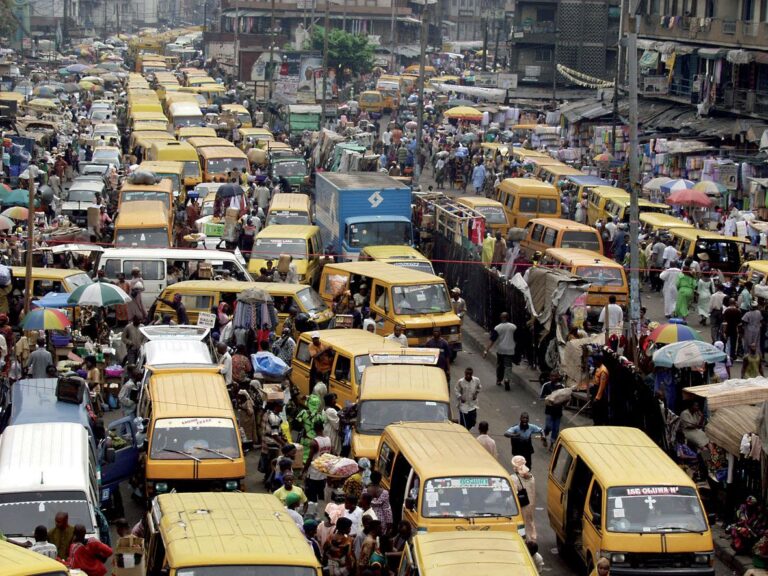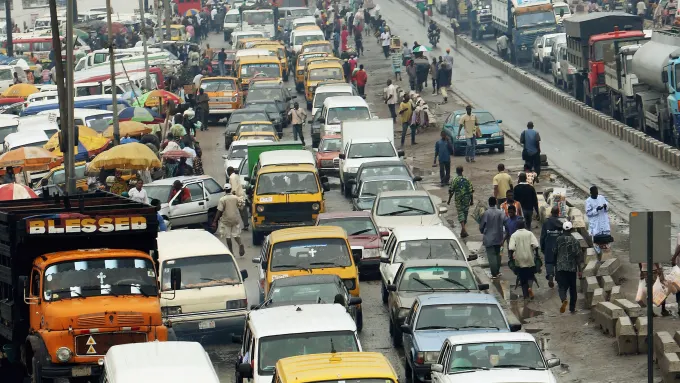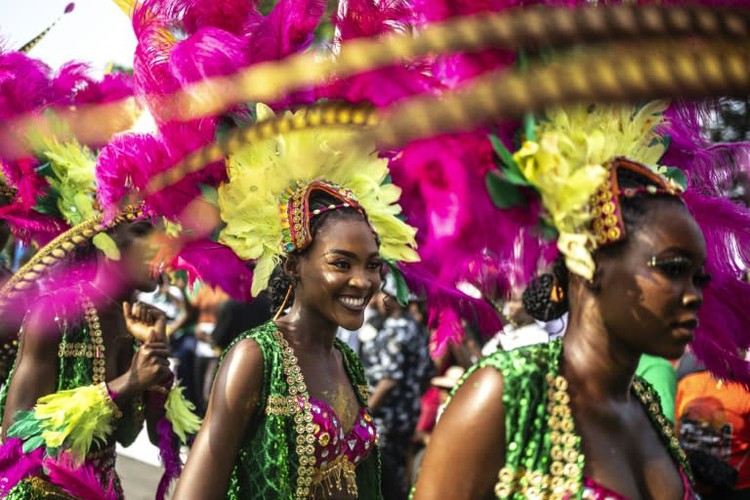Dear Beamers,
Greetings!
Nigerians experience a complex lifestyle that demands adaptability and resourcefulness, particularly in dealing with chronic traffic congestion and inadequate infrastructure, which impact business success. Every workday, especially Mondays, millions of Nigerians energetically head to their workplaces, eager to seize the week’s opportunities. Despite the country’s vibrant culture and thriving business spirit, Nigerians face numerous challenges that make daily life a constant test of perseverance. This week’s newsletter provides an in-depth look at the challenges posed by road traffic, which continuously disrupts the daily routines of Nigerians.
Traffic congestion, commonly referred to as “hold-up” in Nigeria, is a significant source of frustration. This man-made problem plagues many states across the country, affecting nearly every city. The challenges of moving through traffic are apparent, making it unreliable to travel from one part of a city to another within a set timeframe. Residents and commuters not only endure the inconveniences of traffic jams but also deal with side effects such as pollution and higher fuel costs. Complaints and frustrations are constant, yet necessary action from authorities remains pending.
Traffic congestion has become so routine in our society that it is often met with resignation rather than surprise and frustration. This congestion can range from slow-moving traffic, known as “go slow,” to complete standstills lasting several minutes or even hours, referred to as “hold up.” Intense traffic congestion occurs when traffic volume surpasses the road’s carrying capacity. This issue affects both urban and rural areas, but with increased awareness and attention, it is possible to mitigate its impact and make our roads safer and more efficient.
Sokeye Abiola, a receptionist at a tech firm, describes road traffic as the most stressful part of his day. In his words,
“I spend at least 2-3 hours every day commuting to and from work. In the morning, it takes about 30-45 minutes, but getting home can take up to 2 hours when traffic is really bad. Just thinking about the traffic ruins my day because my job itself isn’t stressful—traffic is the real problem.”
Over the years, the geography of certain states has significantly contributed to traffic congestion. For example, major trading districts in Lagos are situated on islands with limited entry points, forcing commuters to take the same routes daily, often at the same times. It’s now common to see lines of taillights stretching far into the distance. The city’s infrastructure is overwhelmed by the number of vehicles. Each visitor typically has access to one or two cars, which worsens the congestion. As Africa’s seventh-largest economic hub, Lagos attracts a continuous influx of people from various states seeking opportunities, making Nigeria’s smallest state by size extremely crowded both on and off the road.
The persistent traffic issues in Nigeria have led to various behavioral changes among Nigerians, particularly in the megacity of Lagos, which is most affected by traffic jams. A notable behavior is the reckless driving by commercial drivers. These drivers, motivated by the number of trips and potential earnings, often engage in risky behaviors such as driving on curbs, weaving through traffic, and running red lights. Such reckless driving contributes to traffic congestion as the forceful maneuvers can result in accidents requiring major repairs. As a result, these actions often lead to conflicts with other drivers or commuters who feel wronged, causing them to stop their vehicles and argue, which further exacerbates the traffic situation as vehicles behind them are forced to a standstill until the conflict is resolved.

The indiscipline of reckless driving in Lagos manifests in various forms due to impatience, disregard for traffic regulations, and reckless behavior. This problem significantly contributes to the city’s traffic congestion. Drivers often take alternative routes through residential areas, create paths through bushes, or choke adjacent roads by driving against traffic, all in an attempt to reach their destinations as quickly as possible. The presence of “Agberos” or touts, who collect money from bus drivers, aggravates the issue. Their aggressive and arrogant behavior disrupts traffic flow and frequently leads to confrontations with drivers, further obstructing the roads.
Alozie Kenneth, a commercial bus driver in Lagos State, explained why he has adopted a fast driving style. In his words,
“I used to drive in the east before moving to Lagos with my family. It’s very different here. I used to drive carefully, but now I drive roughly sometimes because that’s how it is in Lagos. Agberos, police, and garage workers all take money from you, and the roads are bad. If you drive slowly after paying everyone, you won’t have enough to take home to your family. So, we have to make as many trips as possible. It’s not our fault.”
Another behavioural patterns that promotes traffic issues in Nigeria is indiscriminate pick and drop of passengers on the road. The practice of dropping passengers anywhere along the route, instead of designated bus stops, adds to traffic congestion. Drivers, eager to meet revenue targets, compete for passengers, blocking two lanes and impeding the smooth flow of traffic. Despite the warnings and several penalty charges some drivers have been made to pay for this act, it doesn’t seem enough to redress the issue as this is express both on normal roads and highways thereby leading to further wastage of people’s time in traffic. Roadside sellers trying to promote their business also have their share in contributing to daily road traffic. Roadside sellers and passengers bargaining in traffic also effectively narrow the road, slowing down traffic considerably. This adds to the frustration of drivers as they won’t want their passengers to be victims of being duped by these sellers neither will the drivers behind want to overtake to avoid accident and as a result of concern traffic congestion is increased.
Another behavioral pattern contributing to traffic issues in Nigeria is the indiscriminate picking up and dropping off of passengers along the road. This practice, where drivers stop anywhere along their route instead of at designated bus stops, results in traffic congestion. Drivers, eager to meet revenue targets, often block multiple lanes while competing for passengers, impeding the smooth flow of traffic. Despite warnings and penalties, this issue persists on both regular roads and highways, leading to further delays. Roadside sellers promoting their goods and passengers bargaining with them also contribute to traffic jams. These interactions effectively narrow the road, significantly slowing down traffic.
Ajara Obanla cites non-compliance with traffic lights at major intersections or junctions by impatient drivers and road users as a significant contributor to traffic challenges in Nigeria. In her words,
“Rushing drivers not following traffic lights on the road cause traffic jams in Lagos. The bad power supply makes it worse, as traffic lights often don’t work properly, also leading to confusion and more jams. All the time, many drivers go against traffic, park in the wrong places, and repair their cars on the road without thinking about the impact on traffic. Overtaking also just to go and meet an incoming car meant for the lane, gbam! no road, fight starts and you have to start looking for ways to get out of the mess. These actions create major traffic problems.”
One undeniable cause of traffic congestion, often difficult to overlook, is poor road conditions. Bad roads have repeatedly been shown to significantly contribute to traffic jams in many parts of Nigeria. It is no surprise that politicians frequently include promises of road improvements in their election manifestos, recognizing the critical need for improved infrastructure to enhance both daily life and economic activities. Better roads can drastically reduce travel times, with journeys that might otherwise take up to 5 hours being completed in as little as 2 hours at average speeds. The issue of poor roads not only adds to the frustration of commuters due to traffic congestion but also raises concerns about comfort and safety, increasing the risk of accidents.
In areas where roads are in poor condition and impassable for regular buses or cars, motorcycle taxis (okadas) and tricycle taxis (keke Marwa) have become popular modes of getting through traffic. These operate informally as public transport options. However, okadas are banned from large parts of several states across Nigeria, increasing tension for people stuck in traffic with limited alternatives. There have been calls for the reinstatement of okadas on major routes affected by congestion, but progress has been stalled as the government cites concerns over fraudulent activities involving okadas and their role in accidents.

Enikanologbon Hamad, a graduate of architecture, advocates that improved road planning could significantly alleviate traffic issues in Nigeria. In his words,
“Bad roads can be fixed by quickly implementing the proposed road plans from each state to reduce traffic. Building more flyovers, bridges, and roads will help prevent traffic issues. Traffic lights should be installed on major and busy roads, and the problems with improperly programmed lights and those only working at night should be fixed. There should also be laws to guide vehicle movement during the day and night to avoid road overcrowding. Large trucks and tankers should be restricted to nighttime movements when there are fewer commuters. This would make the city’s traffic less congested.”
The economic development of a country is closely linked to its transport system. However, traffic congestion remains a significant impediment to effective mobility of people and goods. It has become a national phenomenon plaguing several states, resulting in extensive delays, unpredictable travel times, increased fuel consumption, and significant losses in both man-hours and monetary terms. The growth in human and economic activities, coupled with heavy reliance on road transportation, has led to a surge in the number of vehicles on our roads, exacerbating the problem of persistent and severe traffic congestion.
Efforts such as deploying policemen and traffic wardens, and implementing odd and even vehicle registration number restrictions, have not effectively mitigated highway traffic jams. Consequently, traffic congestion has become a pervasive and seemingly insurmountable issue on Nigerian roads.
As a nation, we must acknowledge that traffic congestion is a significant issue in many cities, and it is crucial for us to take proactive steps now. This includes advocating for improved public transportation options, promoting carpooling and alternative modes of transportation, and advocating for smarter urban planning. We need to ensure that decision-makers prioritize traffic solutions in their planning processes. Together, we can alleviate traffic congestion and enhance the livability of our cities!




